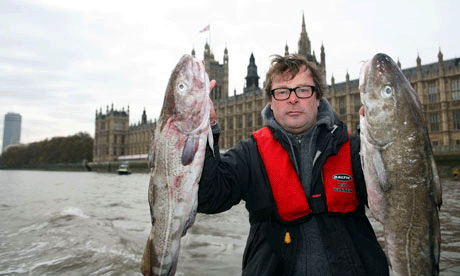Sales of less popular species of fish have taken off following the Channel 4 Fish Fight series of programmes.
The Guardian reports that shoppers are now turning to coley, dab, mussels, squid and sardines after species were championed in the TV series by Hugh Fearnley-Whittingstall’s, who is also the newspaper’s food writer.
Greenpeace, however, has urged some caution, stating that the increase could be just the ‘Delia effect’ at work rather than a concentrated effort by the British public to eat more responsible. Greenpeace said it wants to study more sales reports before coming to a firm conclusion. It adds that highlighting the discards issue was great, but it was only one part of a larger story about fish.
But Sainsbury’s, Britain’s largest fish retailer, has reported that sales of “by-catch” from its fresh fish counter had been “promising” overall, while sales of pollack had leapt by 167% week on week.
It said customers had responded well to the fish featured in Jamie Oliver’s programmes with sales of British and MSC-certified mackerel up 60 per cent and mussels up 16 per cent. Sales of its sustainable “line and pole caught” canned tuna increased by 17 per cent over the last week, while sales of organic salmon grew by 16 per cent and normal salmon sales remained unchanged.
According to the Guardian, Tesco said it had seen an increase in sales of between 25 and 45 per cent for fresh sardines, coley, brown crab, sprats and whiting in the week since the first programmes. It said in a statement: “We sell around 40 species of fish on our fresh counters and our staff are trained to advise customers on trying new varieties. Sales of fresh cod, herring, mussels, mackerel and canned tuna also increased compared to last week.”
Both Asda and Marks & Spencer have said they too have seen more public interest in less well known species increase since the programmes went out.






